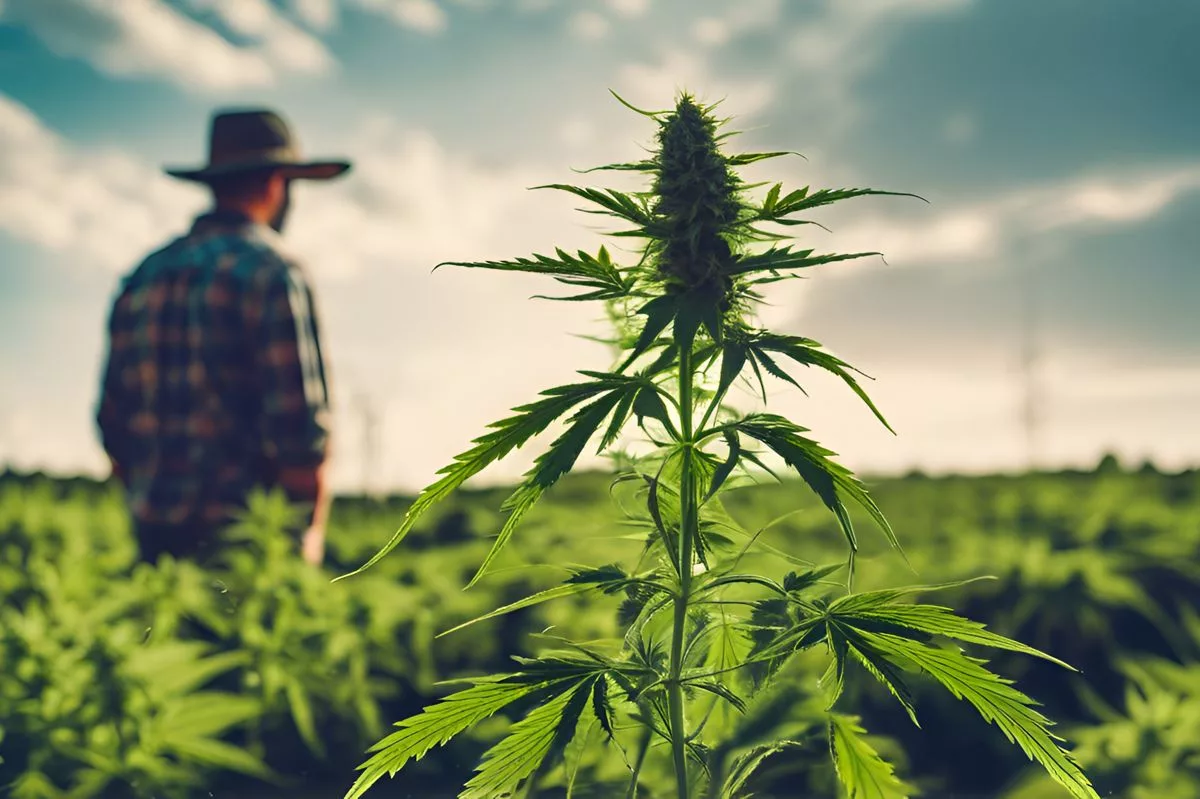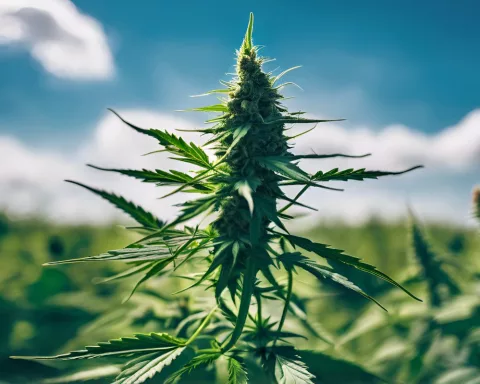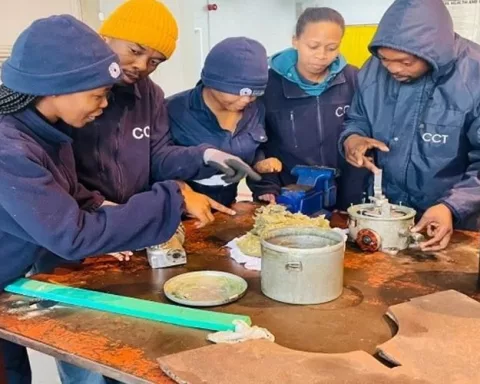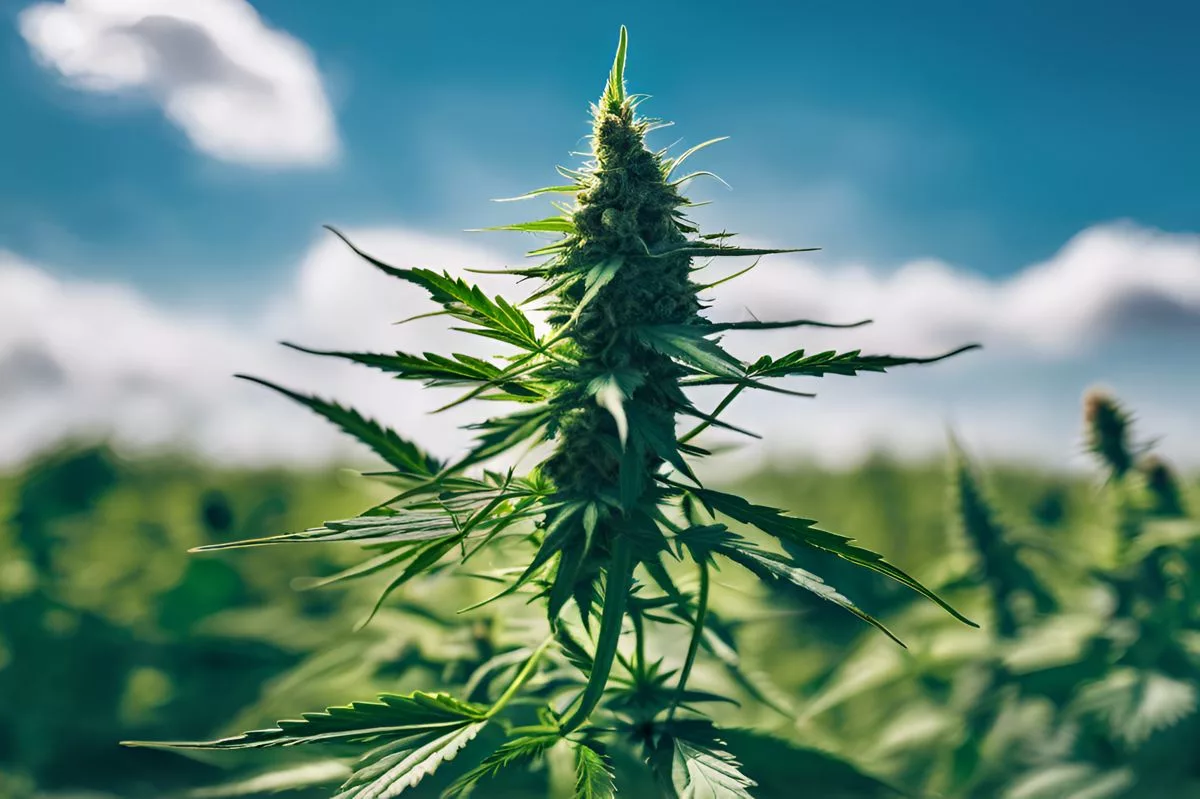The Eastern Cape province in South Africa is investing heavily in the cannabis industry, with a commitment of over R100 million and a target of R1 billion over five years. The investment is estimated to directly employ about 90 individuals and could potentially generate around 3,000 job opportunities in the 2024 growing season with a target of 10,000 hectares over five years leading to the creation of approximately 30,000 jobs and offering a substantial boost to the province’s economy. The province’s commitment to the initiative is evident, and collaborations with key players aim to craft a sector innovation program that bolsters the global standing of the province.
The Eastern Cape province in South Africa is investing heavily in the cannabis industry, with the initial commitment exceeding R100 million and set to skyrocket to R1 billion over five years. This investment is estimated to directly employ about 90 individuals and could potentially generate around 3,000 job opportunities in the 2024 growing season with a target of 10,000 hectares over five years leading to the creation of approximately 30,000 jobs and offering a substantial boost to the province’s economy.
Pioneering Economic Transformation
Situated on the precipice of an economic metamorphosis, the Eastern Cape province in South Africa is making monumental strides. A grandiose investment strategy in the cannabis industry was recently revealed by Premier Lubabalo Oscar Mabuyane. This noteworthy declaration is the climax of years of strategic plotting, and it promises to herald a vibrant future for the province’s socio-economic advancement.
In his 2019 State of the Province address, Premier Mabuyane first voiced his commitment to explore the economic potential of cannabis. With its fertile terrain, the Eastern Cape offers a perfect environment for the cultivation of this multifaceted crop. The potential of the cannabis industry, particularly its medicinal aspects, has been a recurring theme in the Premier’s subsequent addresses and policy statements.
The development and progression of the Eastern Cape’s cannabis industry have been the result of a meticulously designed plan. A comprehensive and inclusive industrial value chain strategy has been developed and the provincial leadership has been steadfast in its support for this endeavor. They recognize the immense potential rooted in the region’s rich legacy of indigenous cannabis cultivators and holders of traditional knowledge.
Regulatory Reforms & Collaborations
While the province eagerly awaits the complete implementation of the Cannabis Phakisa resolution, which would permit the commercial use of the cannabis plant, the progress has been gradual. However, the province remains hopeful and continues to advocate for the expedited implementation of the “sandbox regulatory interim reform”.
This reform is a crucial cog in the wheel of progress as it aims to incorporate the traditional cultivation methods of cannabis by indigenous communities and Black rural farmers into the value chain. This process will involve an evidential approach within a controlled experimental environment. The primary goal is to facilitate multiple demand pathways, culminating in a robust and diversified cannabis industry.
Key players in this initiative include organizations like the Agriculture Research Council (ARC), the Council for Scientific & Industrial Research (CSIR), and the Eastern Cape Rural Development Agency (ECRDA). These entities have joined forces with cannabis farmers to improve product quality and optimize outputs.
Economic Impact & Job Creation
The province’s firm commitment to the initiative is evident in the significant amount of investment announced. The initial commitment exceeds R100 million, which will kickstart in 2024. The investment covers indoor growth, packaging, Cannabidiol (CBD) extraction, and cigarette manufacturing operations, estimated to directly employ about 90 individuals.
The investment is set to skyrocket to a staggering R1 billion over five years, promising substantial employment opportunities. The cultivation target for the 2024 growing season is 1000 hectares, which could potentially generate around 3,000 job opportunities. Over five years, a target of 10,000 hectares could lead to the creation of approximately 30,000 jobs, offering a substantial boost to the province’s economy.
Future Prospects & Partnerships
This new initiative brings forth golden opportunities for the Eastern Cape Hemp Producers Association and their farming operations. They are urged to capitalize on these prospects for further expansion and development. In its commitment to support this enterprise, the province has directed its state-owned entities to pool their resources effectively.
Involving local tertiary education institutions in the project underscores the comprehensive and holistic approach adopted by the province towards this initiative. Collaborations with provincial departments, SOEs, and the investor aim to craft a sector innovation program that bolsters the global standing of the province.
The province extends its heartfelt gratitude to Nehawu Investment Holdings, the majority stakeholder in Medigrow, and other shareholders for selecting the Eastern Cape as their investment destination. This investment heralds the province’s significant stride towards becoming a central figure in the national cannabis economy. The provincial administration, led by Premier Mabuyane, proudly anticipates the fruitful partnership with Medigrow in this exhilarating venture. With its rich cultural heritage and promising potential, the Eastern Cape is set to leave a lasting mark on the global cannabis industry landscape.
1. What is the Eastern Cape province investing in?
The Eastern Cape province in South Africa is investing heavily in the cannabis industry, with the initial commitment exceeding R100 million and set to skyrocket to R1 billion over five years.
2. How many jobs will this investment create?
This investment is estimated to directly employ about 90 individuals and could potentially generate around 3,000 job opportunities in the 2024 growing season with a target of 10,000 hectares over five years leading to the creation of approximately 30,000 jobs.
3. What is the goal of the investment in the cannabis industry?
The goal of the investment in the cannabis industry is to boost the province’s economy and become a central figure in the national cannabis economy.
4. What organizations are collaborating in this initiative?
Key players in this initiative include organizations like the Agriculture Research Council (ARC), the Council for Scientific & Industrial Research (CSIR), and the Eastern Cape Rural Development Agency (ECRDA).
5. What regulatory reform is crucial to the progress of this initiative?
The “sandbox regulatory interim reform” is a crucial reform that aims to incorporate the traditional cultivation methods of cannabis by indigenous communities and Black rural farmers into the value chain.
6. How is the Eastern Cape province supporting this initiative?
The Eastern Cape province is supporting this initiative by directing its state-owned entities to pool their resources effectively, involving local tertiary education institutions in the project, and collaborating with provincial departments, SOEs, and the investor to craft a sector innovation program that bolsters the global standing of the province.












